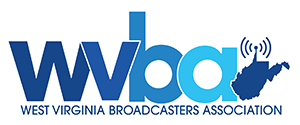Markey, PTC, Common Sense slam loosening of rules
The FCC was taking some heat Wednesday (July 10) after it voted to loosen its children's television rules, including from the Senator behind the Children's TV Act that mandated the FCC educational/informational (E/I) programming rule regime.
The FCC's Republican majority voted to allow for some core E/I programming to be placed on multicast channels, allowed programming scheduled between 6 a.m. and 7 a.m. to count towards the three-hour-per-week mandate, expanded the category for program that could preempt that E/I content, and allows for some programming to be shorter than a half hour and not regularly scheduled. They argue increased flexibility simply responds to changes in video marketplace.
“Today’s FCC decision sacrifices children’s education and well-being all for corporate profit under the guise of flexibility," said Sen. Edward Markey (D-Mass.). "Promoting the public good and serving kids should not fall by the wayside for the sake of increased business revenue. While the Commission’s final rule change did not completely dismantle children’s television as originally proposed, it clearly put the interests of companies ahead of our kids. Low-income and minority communities will be hit the hardest by these changes as children in these families dis proportionally rely on broadcast television."
When the draft of the "modest" kidvid revamp was released, Markey had given the FCC some credit for not "dismantling" the rules entirely, but at the same time joined with other Democratic legislators to argue the changes that were made were counterproductive to ensuring children's access to E/I programming, particularly low-income children.
The Parents Television Council called the rule changes "a step backwards for children."
Related: PTC: Netflix Smoking Ban in Kid-Rated Fare is Only Baby Step
“The changes to the children’s programming rules adopted by the FCC today have placed the financial interests of billion dollar broadcast corporations ahead of the educational and informational needs of America’s youth," said PTC president Tim Winter. "The changes are a big step backwards for children, but at least they are less drastic than what was originally proposed over a year ago. We appreciate the consideration given to the concerns we’ve expressed throughout this proceeding."
"Chairman Ajit Pai is making it clear for all to see that kids and families are not a priority for him," said Common Sense founder and CEO James Steyer. "Under chairman Pai’s leadership, the FCC has spent over a year finding every possible way to loosen requirements for broadcasters making it more difficult for low-income families to access educational kids content. To make matters worse, this was an opportunity for Chairman Pai’s FCC to strengthen the incentives for media companies to create quality educational content for kids. Instead, they took steps backward on every level, reinforcing that Pai is in the pockets of big media companies and has no interest in improving the lives of kids and families."
"It’s a sad day for children," said Josh Golin, executive director for Campaign for a Commercial-Free Childhood (CCFC)."The FCC has shown that they are more concerned with protecting the profits of media and marketing companies than they are with protecting children and families who rely upon educational programming. The media landscape is changing, but so much of what kids see on the internet exposes them to manipulative marketing and inappropriate content. More than ever, kids need programs which will educate and uplift them. Companies granted the privilege of using the public airwaves have a duty to provide content which will educate and inform children. With the FCC’s help, they now have license to shirk that responsibility."
Powered by Suchmaschinenoptimierung


